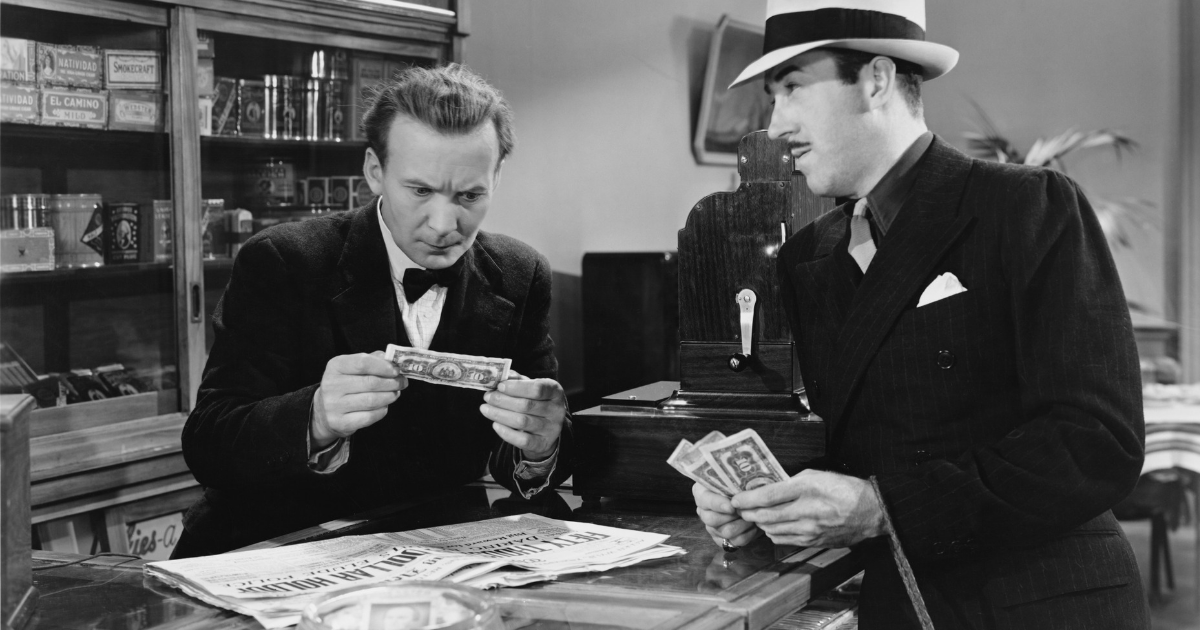
You know the first time you wander into the market area of some big city, and you start seeing really famous brands being sold at amazingly affordable prices, and you reach for your cash to buy yourself a nice luxury watch or to get your girlfriend a designer purse, and just as your fingertips brush the leather of your wallet, your eyes suddenly focus and you notice that everything’s a little… off. It shouldn’t be Rolox, should it? And Bluie Vuitton definitely doesn’t sound right. Why can’t a guy get a quality product with an internationally recognized label for the price of a cup of coffee? Is that too much to ask?
Bootlegs are the source of many an eyeroll, and the twists they use on real brand names can often be pretty hilarious, but their legal status is no laughing matter. Ever since the passing of the Lanham Act in 1946, trademarks’s been protected by law. What you might not know is that people can also be found guilty of “contributory liability” under the Act, for “induc[ing] or facilitat[ing] the infringing conduct of others.” Enter the landlord.
Obviously, someone leasing commercial spaces is more at risk here, so we’ll focus on that, but remember that people can sell counterfeit goods from a residential property and that’s just as illegal. A landlord whose tenants traffic in knock-off products could incur a fine, imprisonment, or have their property confiscated. Courts will judge a landlord more severely if the prosecution can provide evidence of “willful blindness,” an ominous term that translates to being aware of trademark infringement but doing nothing to stop it. Turns out knowingly profiting off a crime is crazy illegal.
Penalties rely on the brands affected by these sales taking the tenant and landlord to court, but don’t underestimate the persistence of a ticked-off label. They can, and will, send undercover inspectors round to prove that a crime is taking place.
In March of this year, the 375 Canal, LLC company had to award a total of $1.1 million to Omega, Swatch, and other brands for their “willful blindness” in counterfeit sales. The prosecution proved this with three important facts: several salespeople were arrested in 2010 and 2011 for illegal sales, the plaintiffs notified 375 Canal of these arrests and noted they were still able to purchase knock-offs a year after the complaint, aaaand… the landlord had already been sued by Louis Vuitton in 2006 for the exact same thing. Fool me once…
In Luxottica Group S.p.A. v. Airport Mini Mall, LLC (N.D. Ga. February 10, 2017), the plaintiffs sent investigators to the relevant shopping area and found multiple vendors selling bootleg Ray-Ban and Oakley products, both brands owned by Luxottica. Police seized goods and made arrests, but again, investigators noted that a few months later, nothing had changed. Luxottica sent a cease and desist letter. The landlord didn’t respond. You can see where this is going. Luxottica sued the landlord, who claimed to have had no way of knowing which retailers were committing crimes… despite repeated police raids. The jury ordered Mr and Mrs Mini Mall pay $1.9 million in damages.
Another place in New York got slapped with a $2.6 million award for failing to act on a tenant selling counterfeit Michael Kors products. The pattern we see in all these cases is a dismissive landlord, consistent rulings, and damages that absolutely don’t make aiding and abetting these crimes worth it. You’d have to collect rent for a couple centuries from any one individual counterfeit store to cover these legal costs. Better avoid them in the first place. How would you go about doing that?
Clearly forbidding these sorts of sales in the lease is a must, with any violation punished with eviction. If there’s even the slightest suspicion of illegal activity, you have to be on the tenant like white on rice, but if you’ve received no tip-offs or haven’t noticed anything strange, don’t be overzealous. Not only can it cause animus with the tenant, it could also backfire if someone really is trading in bootleg goods: investigating and finding nothing while something was happening out of sight could indicate to the court that the landlord suspected wrongdoing, but didn’t do enough to resolve the issue.
Ultimately, as is so often the case, consulting an attorney before taking drastic action is always a good idea. A little investment up front can save you a lot in the long run… even a couple million, as it happens.
